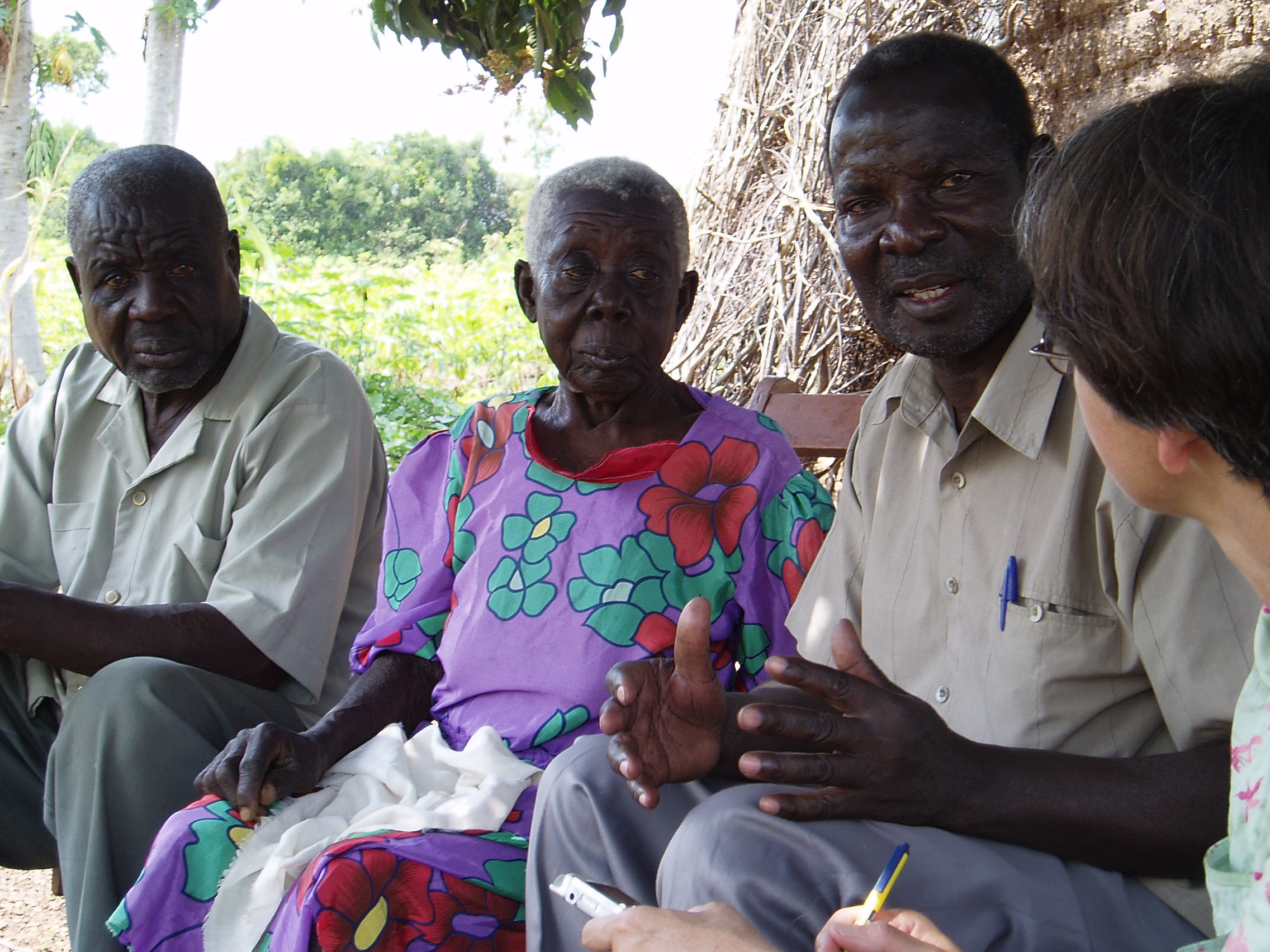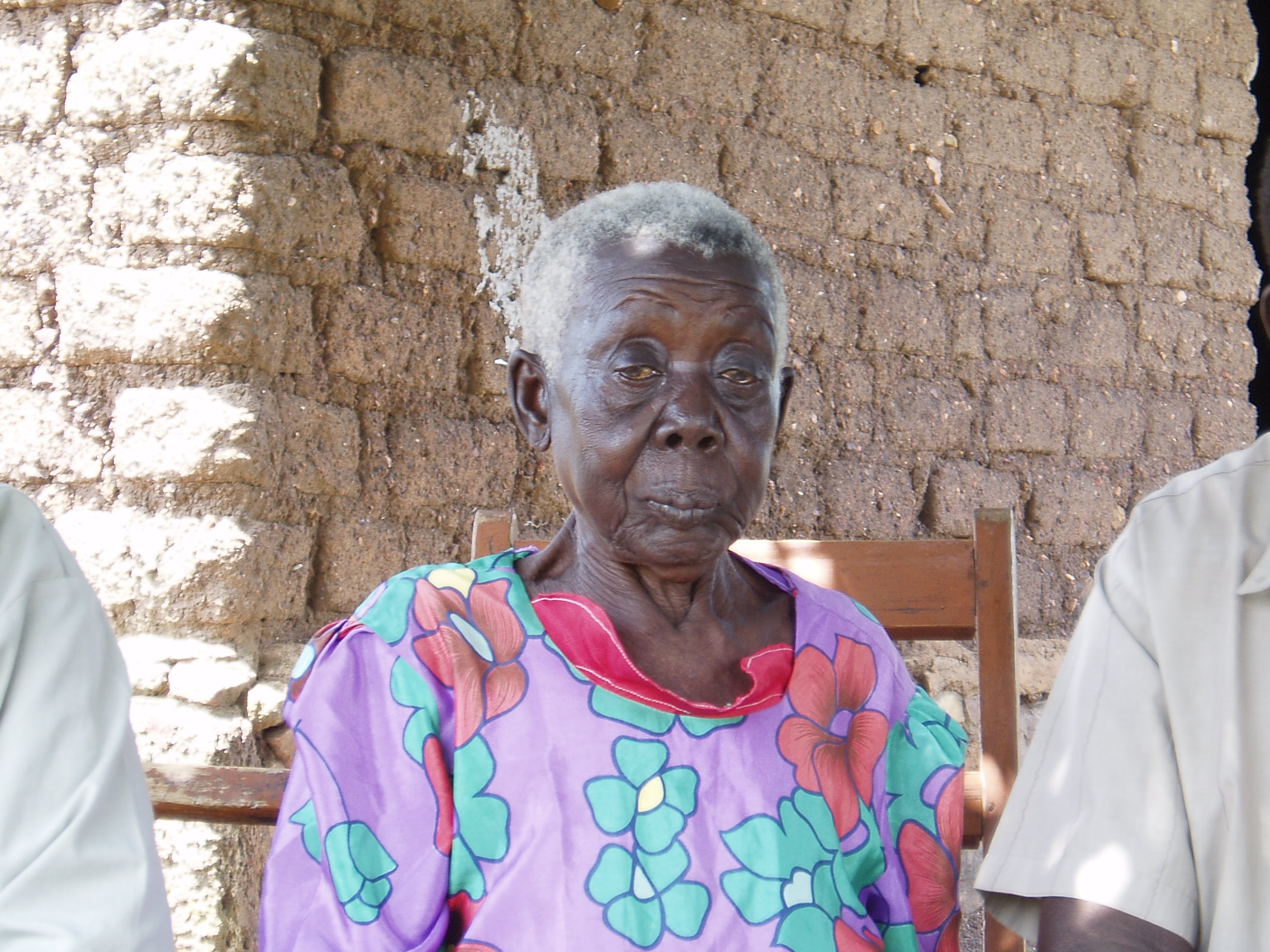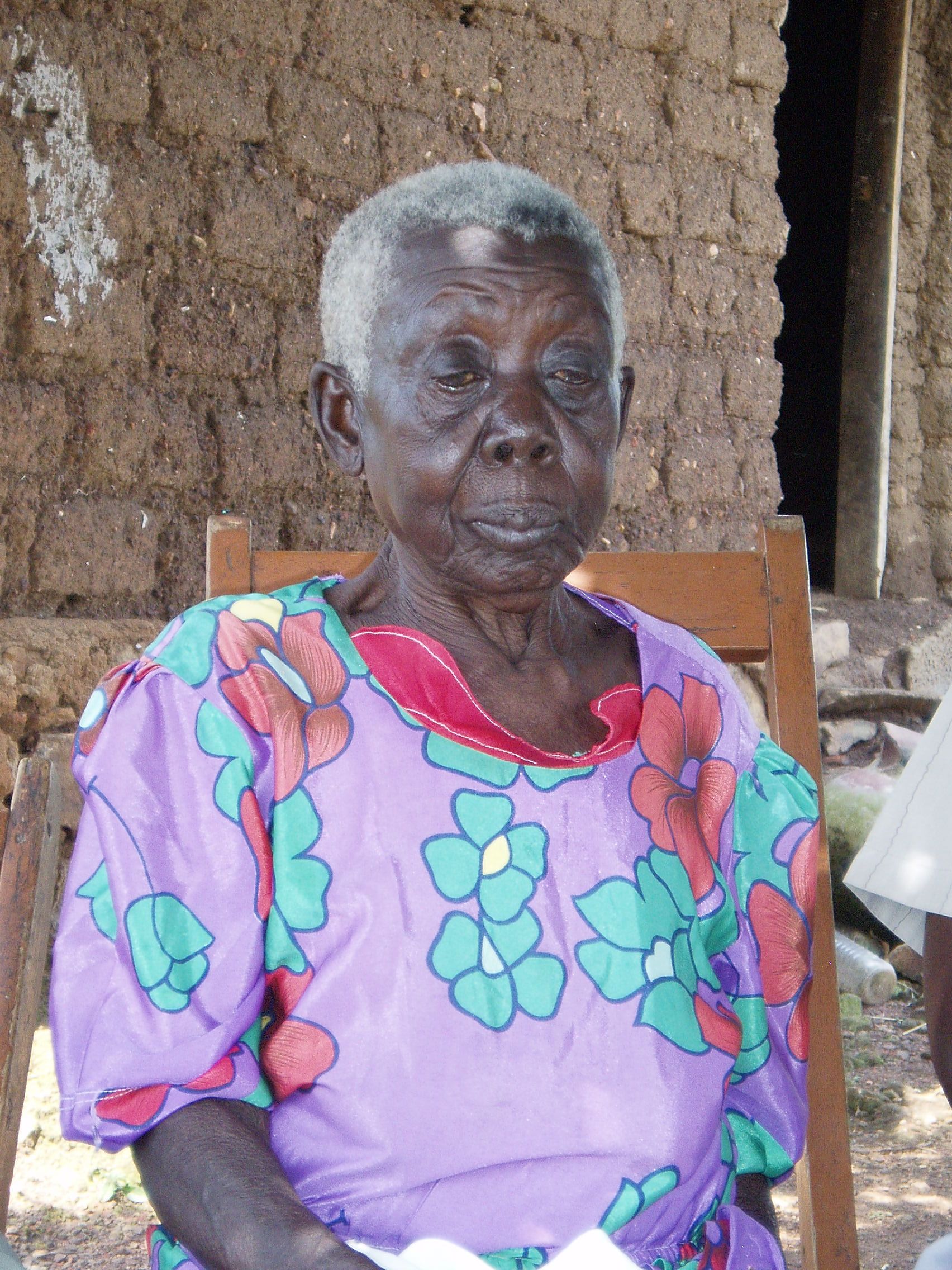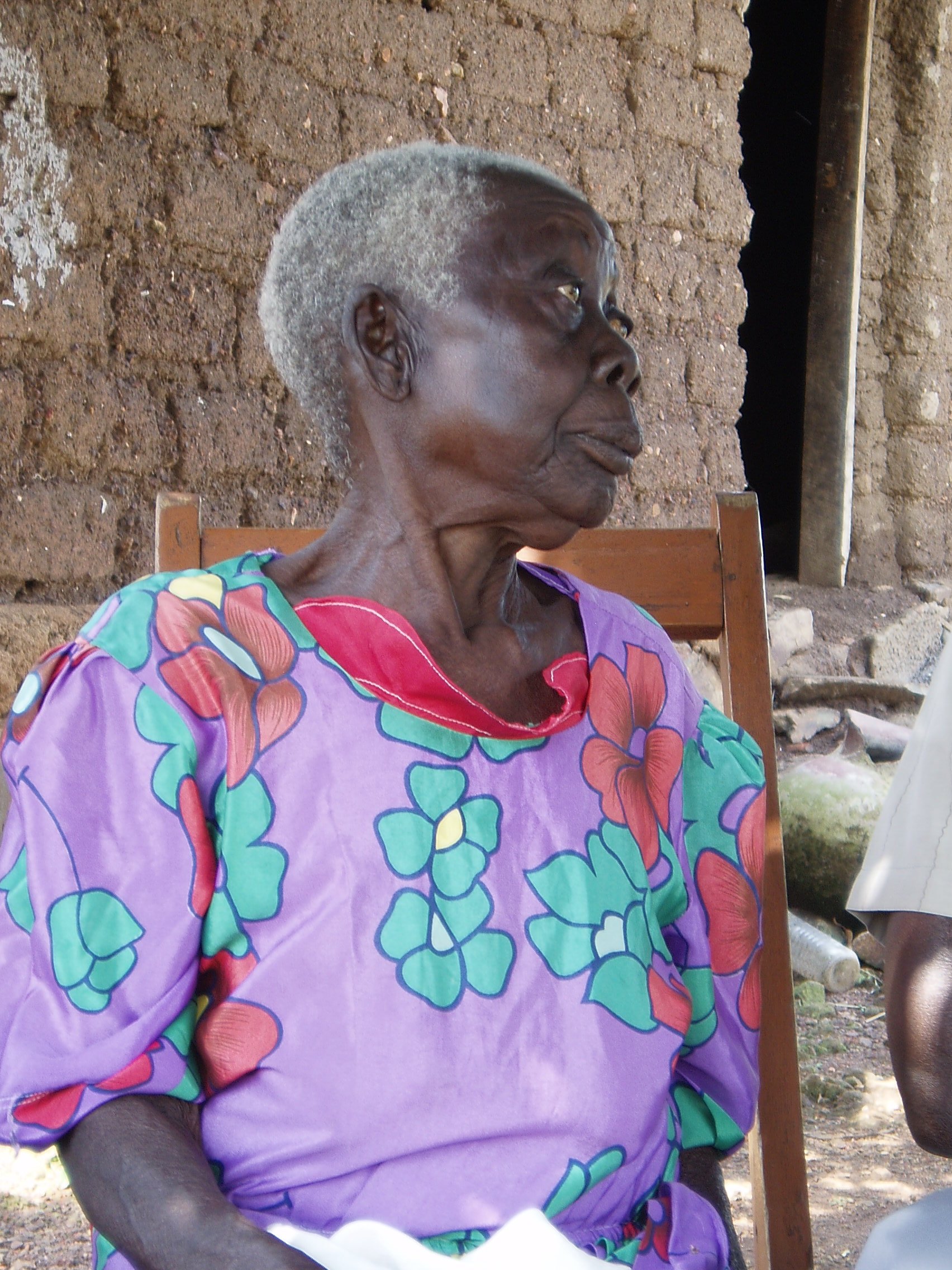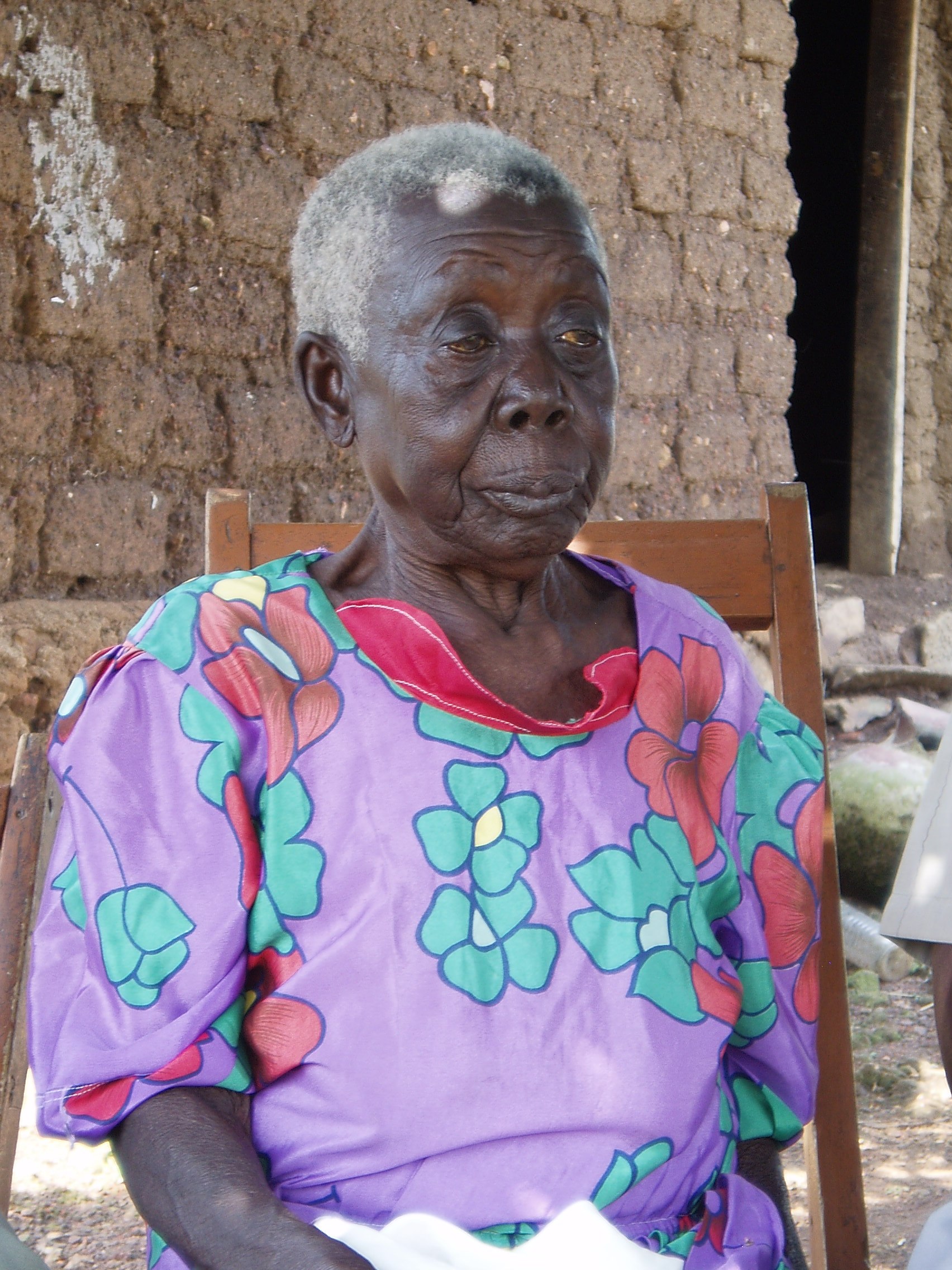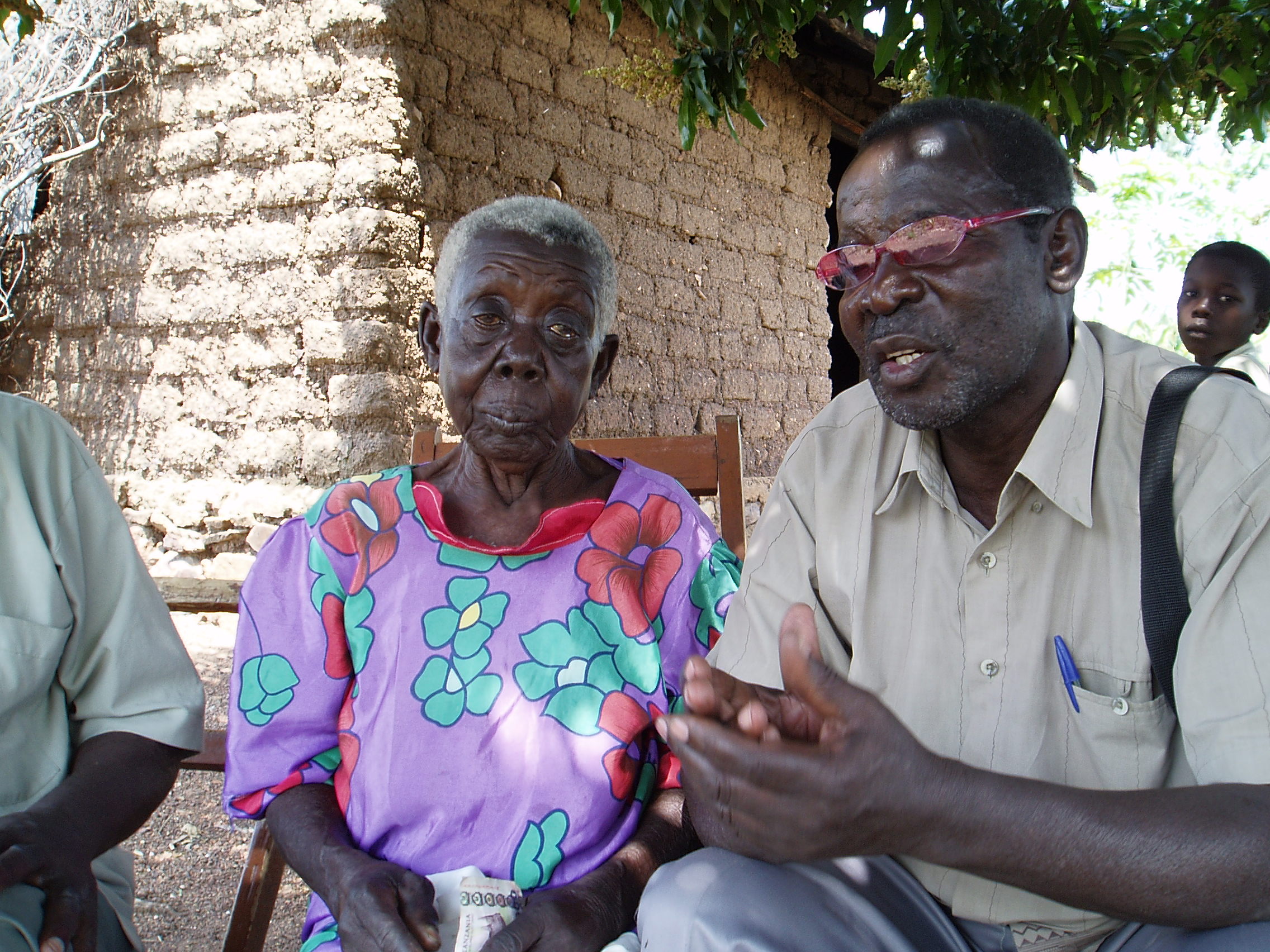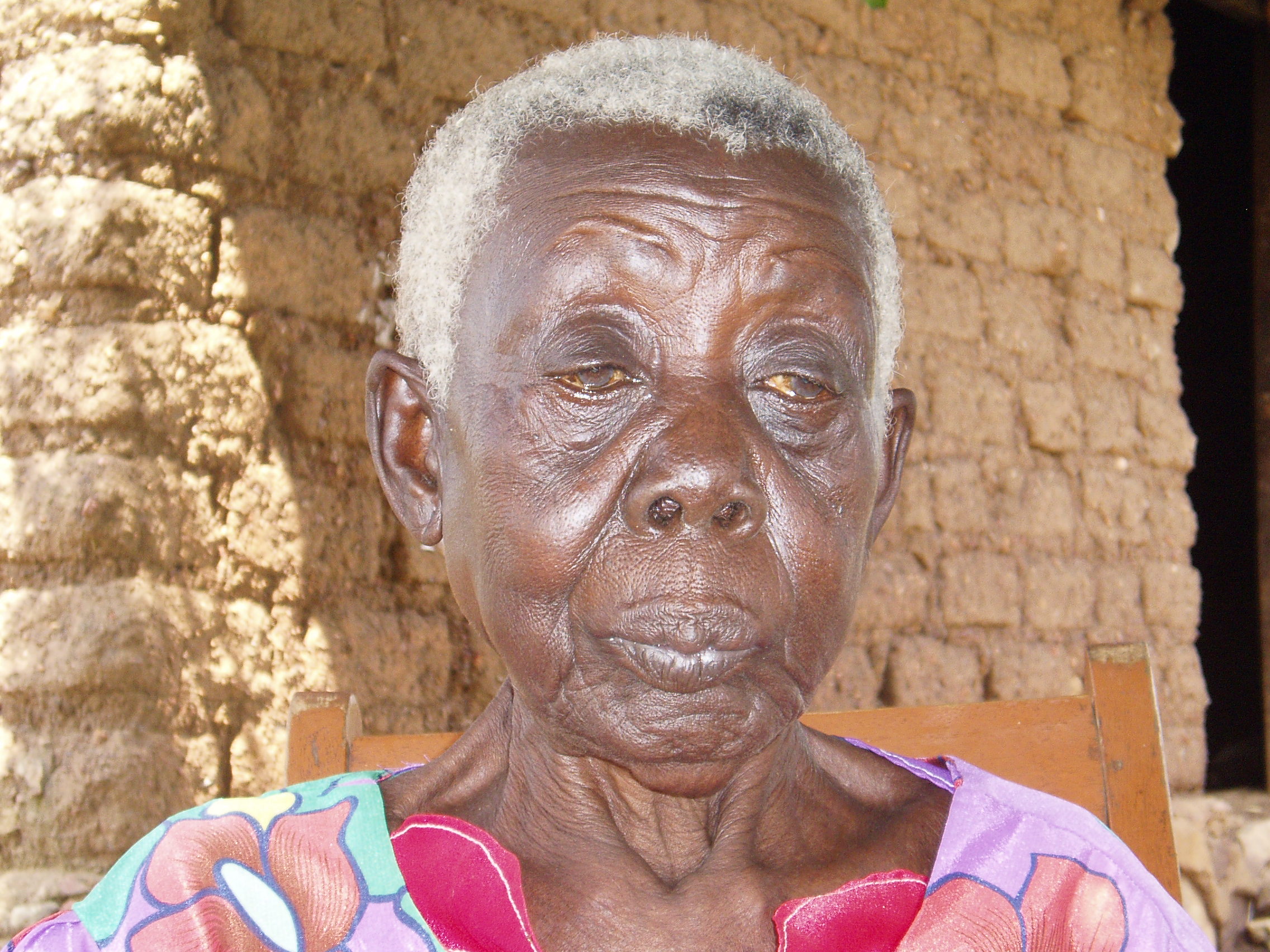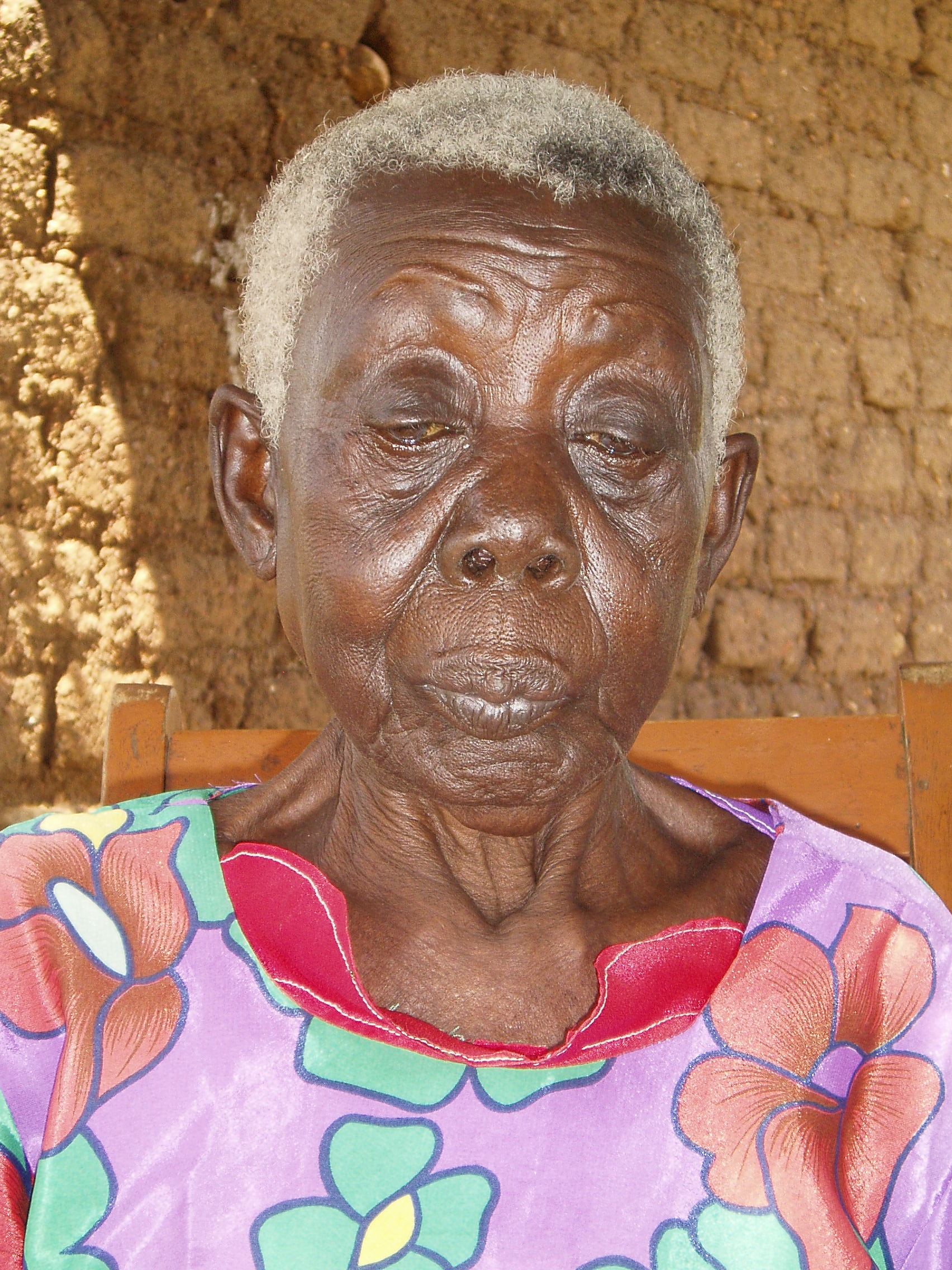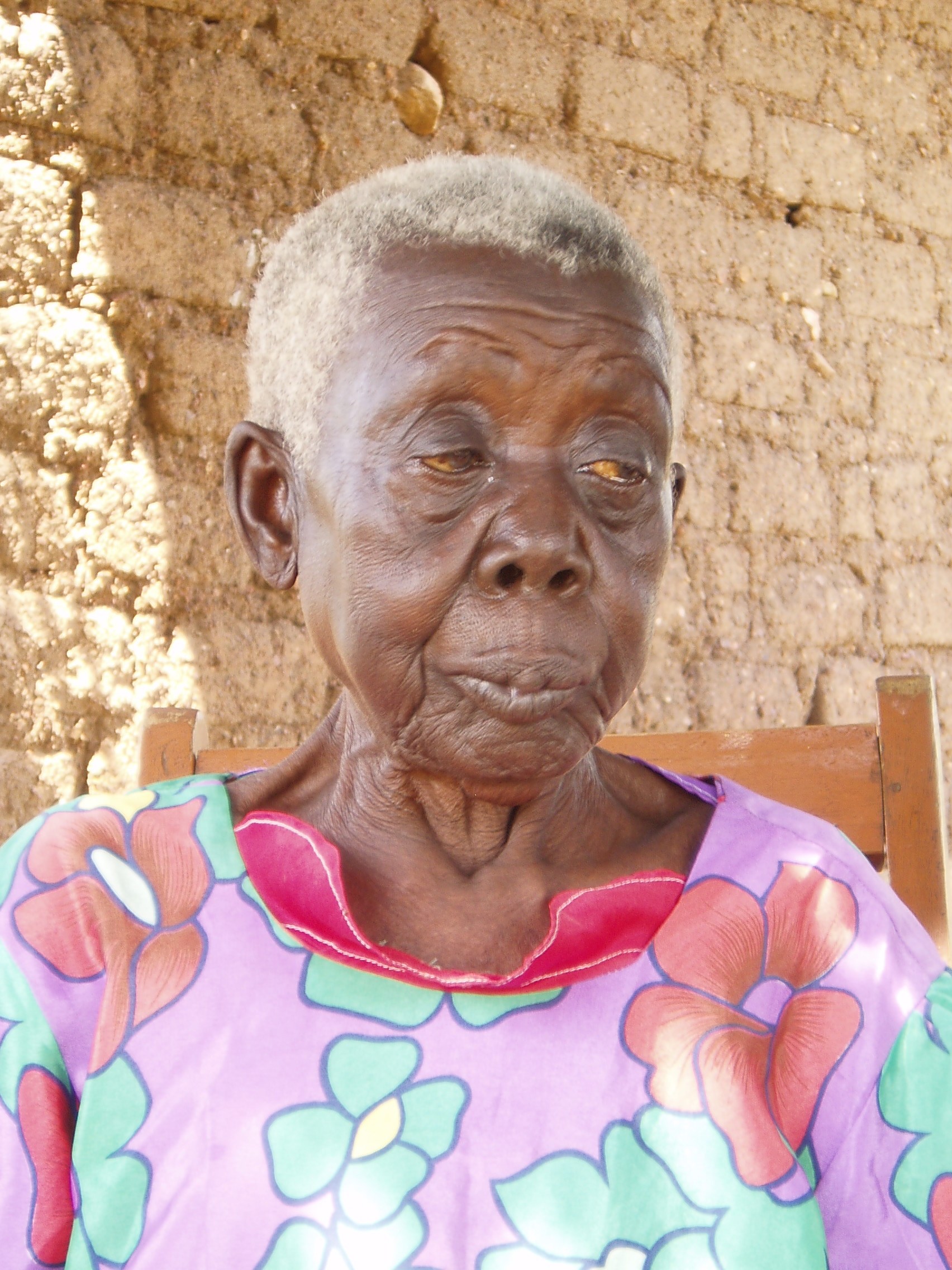Field Notes
Interview #11 (Juliana) Ariya Saramba With Zedekia Oloo Siso, at Kowak, Saye, 31 July 2007 Folder A: DS 400031.WMA audio, #13 and 14 video Born in c. 1918. The first world war was finished when she was born. This was the time when the telegraph and the phone came to the region. The markers were put on the boundary of Kenya and Tanzania. She is from Bugire, Kogaja clan. Ariya is the name of a friend who was killed in the war. When her mother was pregnant people were running from the war to Musoma to get away, Nyamagonyo. Her mother went there to hide. She had no friends or family there. They ran away on land on the floating papyrus. After the British came, her mother went back and she was born. Then Kenya and Tanzania were all one thing under the British and the Germans were gone. When she was a little girl there was a famine (Njaa ya Kanga), which was bad so they went to Kenya to get food. She was still a child. The men went to get food in Kenya. They took their metal bracelets (Vyuma) and traded them for food. The bracelets were brought by the Arabs and the whites (Wazungu). If they had anything, even sweet potatoes, they would take and trade it. The girls helped to farm and get wood and get wild food. They would eat wild food and milk when there was famine. They could work for someone for food. Potatoes (Viazi) took even a year to mature, not like now when it ripens in only a few months. When she was ready to be married, it was the time of the locusts (Nyangwiso). The locusts laid eggs in the dirt and when they farmed the soil they hatched out and were everywhere, even just lots and lots of locusts. The locusts could even cover the river and you could walk on them. There were locusts everywhere. They would fly on everything living, the leaves of the trees and crops, and finish everything. Once Auma and her brother in law (Shemeji yake) scared them away from the sorghum, the locusts still ate the millet. When they were still little with no wings, they came like darkness. Then one was able to scare them away. Her husband and brother got cassava to plant at this time because the locust wouldn’t eat it. They planted it as a group (kikundi) to help themselves. Millet (Ulezi) would all be eaten by the locust. Her sister was already married in Kowak so she brought her brother in law to get a wife in Bugire. She was very young when she got married, 14 years. They were friends up there, so they asked about getting a bride. The Wagire, some of them still spoke a Bantu language. And some spoke Luo. They talked more Luo in her home. Her father’s family the mother of her father was from Kamageta so the mother of her mother came from Kenya so she spoke Luo. The Luo language came from the women they married. At this time it was hard. If you wanted a bride you sent a woman to go find one for you. They could travel around the region and not be killed because they were women. They brought the cattle for the bridewealth (mahari) to marry. She brought at least 6 women from Bugire into her husband’s family for marriage. Women would be good with words and help to get you a bride at home. They would tell you where to go to find a girl to marry. Among neighbors I brought in many many other girls. [MARRIAGE] Once they were brought in the two groups could not fight each other anymore. How could they fight their own family? Lots went to Suba and other places etc. Juliana knows the history in Kowak too, which was told to her by people when she came. She sat with the elders (wazee) too. She went with her husband to drink alcohol (pombe). She carried his stools. She would get into discussions because people would tell her about the past. The prophetess Auma was from her family. Auma Omolo. Her father was a prophet too. Her brother was also a prophet. Onyango Omolo. He would scream (piga kelele) to call people to the Mnt. Nyamusanda. When he saw a disease or a famine coming he would ask someone to give a cow to the butcher and give to the spirits. No witches (wachawi) could come in here then.Onyango Obaro went to the lake at night and got medicine (dawa) there. Then he had to go back using the road where there were no witches (wachawi). Auma’s sister (Dada yake) was married to Kamot. She had a prophecy like him. Onyango was the chief of Bugire. Kind of medicine (dawa) for Auma. She had dreams that would tell her what to do. Which people are coming to do battle with them. She had medicines that made enemies move away without a fight. Only for Kamot-Kowak did she do the medicines. But other people came to get medicines from her. Were only a few women who got this work, she was only one. The medicine and dreams came themselves, people told her to go away with it at first, they didn’t believe her. Auma was a leader of Kowak, and other men too. Only Auma’s sister was the leader for the women. At this time she was the best one. She was her aunt (Shangazi), Her father’s sister (Dada was baba yake). When she married here. She called the elders (wazee) and said they should put things secretly to put in, so as to bring to keep the country. Before of (kwa) Ojode. Was done near the Kowak hospital now. Still if you touch these places you will see wonders. Photo of Yohannes Adero was brought for Dan to take a picture of. He died at 111 years old, in 1999. Photo of Pius Omolo died 2002. Dett Kowak Kamot. Does she have medicine (dawa) too? A word came to her in a dream. That she would call her son Ouma. Auma brings things to people in dreams. When she was pregnant Auma came in her dreams. Called her by the name. Asked at her home in Bugire about the dream. They told her about Auma. Another dream told her to go to Mzee Ojode’s house (mji). When she went there Ojode gave her medicine (dawa) and she got better. Ojode also had a dream from Auma to give her this dawa. Many times, when she dies someone else will take this wisdom. If you say something like this people will laugh but let them laugh. They will see later. Get dreams and see things like people or clothing coming from the prophecy. When possessed by the spirit of Auma she begins speaking in a loud voice, different from the one she used before, talks in half chant, half song , half command. Her son later said that 10 days ago she told him that some guests who come in God’s shadow (“the kivuli cha Mungu”) were coming and would bring good things to the land, not witchcraft. Translation of the words in Kijaluo from the tape afterwards Njoo hapa, Adika, rafiki yangu, njoo hapa nilipo, kuna maneno ya kusema wa ukweli wa wageni. Wape wageni maneno ya ukweli tupu ambayo wanaweza kukaa nayo. Wape ukweli, uongo hautakiwi. Watabiri maneno wa kweli. Tabiri maneno ya ukweli kwa wageni. Sema na roho ambayo inaona na inazungumzia ya ukweli. Nyamaza pale. Leta maneno yote. Mimi nataka kupanda uliniletea maneno yalio kweli. Mhubiri naomba maneno yote niyasema. Wewe mwenye bega pana wape maneno wazungumzie. Mhubiri angalia tuna mgeni sista hapa mpe maneno ya ukweli akaenayo. Maneno ya uongo haitakiwi. Anayecheka acheke tu. Wewe ulimwengu unakuja ulimwengu mgumu inayoshinda watu kuishi. Mwambie Ojode alete Dedan mahali alipo. Ojode asikataye Deda atakuja kuzungumza anakuja. Siku hizi unayoona yanakuja mbele. Amka beba vizuri, sema unayoona wewe una rangi mbili. Wewe unamwonaji? Ona. Siku zinazoonekana mbele. Fanya kazi vizuri. Sema ukweli. Msaidie. Beba vizuri atengeneze maneno vizuri yaeleweke. [Sings this] Wewe mwanga mkubwa, jua, mwanga unanizungumzia nakuniangazia katika mlango wa mji. Unaungana na Yesu yiwe kubwa. Umeyabeba yote maelekezo. Nilibeba mwanga huu juu. Nilimbeba maneno yote. Mhubiri unanizungumzia lakini sikuoni lakini sauti na sikia na yashika. Wewe mbona huoni Yesu ni mwamba. Rafiki yangu uwaambie wageni maneno ya ukweli. [Sings] Yote maneno mazuri uliyaona tunazungumzia juu yako. Wewe mtegaji, hata samaki ziwani utuletea tunakula kwako. Ogola mwenye mkono mrefu na ubani. Nimetayarisha na nimeweka ubani. Sisi ni ukoo mwenye mkono pana. Nyosha mkono wako pana. Wewe kinu unaotwanga maneno na kuyachuja. Saga maneno. Yasage. Mwenye kinu nakugawa kwa watu wako. Wewe uniambie, wewe ni wa mji mkubwa, niliingia kwenye mji huo. Usinyamaze zungumza tu. Kuna maneno, maneno yalikuwepo. Maneno yalikuwepo. Yaligeuka kuwa mtu. Tutakula nini? Lima! Tutapata ulezi, tupate mihogo, mtama. [Sings] Wewe nishikilie vizuri. Mambo yote yanatakiwa. Wewe nishikilie tutasali pamoja. Lete tusali kwenye mji huu mkubwa. Yakuzungumzia. Sema nafasi ni kubwa unaposema ni mkubwa. Kiboko (whip) kinayotandika watu. Kiboko kinapiga wanaofanya mabaya. Wewe ni kiboko. Angalia mambo yaliokuwa kwenye dhiki. Kwa nini inakuja kunipata [Sings] Fanya dhiki itoke, uweze kuleta baraka. Wewe jua unaona kila kitu utuangazia tunayoyataka. Unaongeza wewe. Niliongeza kokoro. Tutega maneno yote. Mimi nimekuokokwa mzigo mzito. Wewe kwenda ziwani ukaleta mboga ya ukinde. Uje ugawie watu wale. Mimi ni Onyango Obwalo. Mkono mpana kama ziwa. Nimeshika ngumu, nzito. Ni ingue nitoke kwenye kazi hiyo. Niokoe niwe mzima wewe ni mpangaji anayepanga mambo yote. Sisi hapa tuna wageni wakubwa tuna dada yetu hapa. Mtupangue mambo mazuri. Usingamize kabla ya kumwambia dada yetu. Kitu ya kung’oa inakuja. Kung’oa watu. Kuna kitu kilipita hapa. Kweli ilipita. Halafu Yesu aliungana inapita hapa. Yesu ndiyo mshuhudia hata Yesu alishudia mateso hayo. Unibebe juu nimetoka kwenye mji, ukoo kubwa. Nilitoka kwenye ukoo mkubwa, mkubwa, mji huu. Usinibebeshe mzigo, ni mzito. Mwambie dada neno yote yako kwenye moyo wangu. Usiache kumwambia yote. Niletee hata samaki ya ziwani huko. Hubiri, hubiri neno la Mungu. Mungu yupo. Hubiri neno la Mungu. Mungu yupo.
Show Full Field Notes
Download Field Notes PDF

